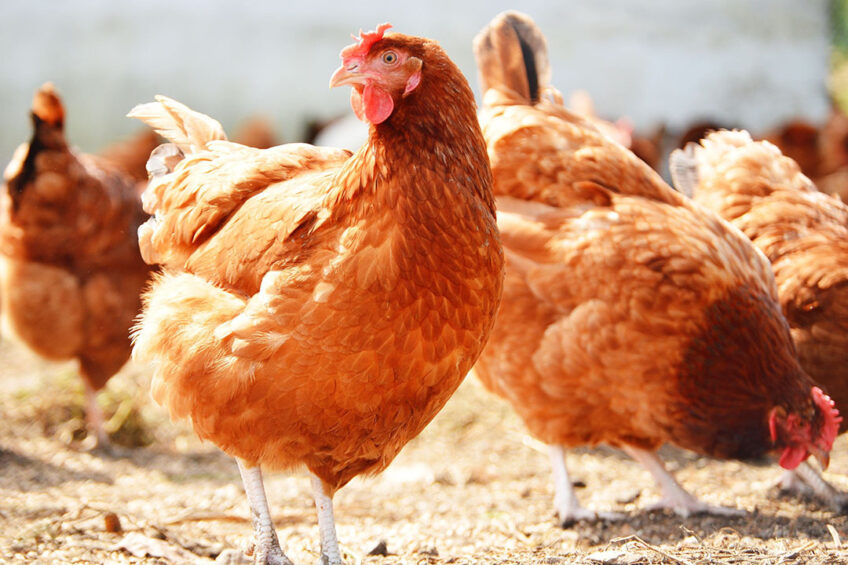New welfare standards for laying hens cause concerns

The introduction of verandas and natural daylight requirements are 2 of the measures being introduced for egg producers next year by the RSPCA’s farm assurance scheme in the UK.
From 1 May, farmers will face a number of new standards as well as revisions to existing ones, although there will be a phased process for some of the more significant changes, with producers being given up to 6 years to implement them.
But, the lack of consultation has caused anger in some farming quarters, with the British Free Range Producers Association saying there was no evidence of any obvious financial return for producers.
Dr Kate Norman, senior scientific officer and poultry specialist at the RSPCA, said the new laying hen standards would be a huge step forward for hen welfare: “Two of the key new standards are the introduction of verandas for barn members and the new requirements for natural daylight for both barn and free-range members, which will come into force in 2030.
“We recognise these are big changes for some of our members and it’s therefore really important that we give them enough time to make the necessary changes and support and advise them during that process. As such, RSPCA Assured has doubled the notice period usually given to members to implement new standards from 3 to 6 months, and the RSPCA has allowed up to 6 years for the more significant changes.”
Verandas
Commenting on the need to install verandas, Norman said they provided barn hens with access to natural daylight and an outdoor climate: “There are farmers in the UK and Europe that have already successfully installed verandas or are considering investing in them, which demonstrates how achievable these standards are, even though they may feel challenging.
“When looking at the European farms and research, we discovered that including a veranda resulted in a reduction of the daytime stocking density in the main house. This has welfare benefits such as promoting preening, dustbathing and foraging behaviour, and reduces feather damage.”
Verandas must be installed on all:
- Significantly refurbished buildings from 1 May 2024.
- Members that are newly RSPCA Assured from the same date.
- Existing barn members will have 6 years to install verandas with a cut off date of 1 January 2030.
- Existing free-range members are not currently required to install a veranda but this is being strongly encouraged.
Natural daylight
The new natural daylight standard will require barn and free-range members to provide natural daylight in houses for all hens by the age of 21 weeks, and the natural daylight coverage must correspond to at least 3% of the total floor area of the house.
Norman said turkey and broiler producers belonging to RSPCA Assured were already required to provide natural daylight inside the house and that feedback had been positive with birds spending less time lying and more time standing, improving leg health.
But in a statement, BFREPA chief executive Robert Gooch said: “Producers are always looking for ways to improve hen welfare, but there is a serious amount of concern over all the extra requirements being placed on farmers with no obvious financial return.
“While we note the phasing in period, these new standards will still require significant investment from producers, if not now then in the future, and there is no premium paid for RSPCA Assured eggs. It is not sustainable for farmers to continue to invest without being able to balance the books, and those affected will have to consider whether RSPCA Assured accreditation justifies the cost,” he added.
Consultation with producers and BFREPA ahead of drawing up the proposals could have highlighted these concerns before they were published.
The Poultry World Newsletter
Sign up for our newsletter and receive all our need-to-know content three times a week.













